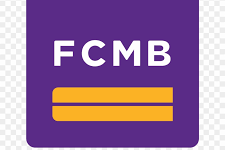WHY EVERY NIGERIAN SHOULD HAVE MULTIPLE STREAMS OF INCOME
PERSONAL FINANCE
Fabian Agore
9/9/20252 min read


If you live in Nigeria today, you already know one truth: depending on just one source of income is risky. The economy is unpredictable, inflation keeps climbing, and the cost of living doesn’t wait for anyone’s salary. Having multiple streams of income isn’t just a nice idea—it’s a survival strategy. Let’s break down why, with examples that hit home.
1. Salaries Alone Don’t Cut It
Take a banker earning ₦250,000 per month in Lagos or Abuja or Portharcourt. On paper, it looks like good money. But after rent, transportation, food, and electricity bills, how much is left? Not much. If that banker loses the job tomorrow, life could spiral quickly. Now imagine the same banker running a side hustle like a food delivery business or doing freelance consulting. That extra stream cushions the blow and keeps the lights on when the main salary is shaky.
2. Inflation Eats Into Savings
Prices in Nigeria don’t wait for your income to grow. Rice, fuel, and transport costs double while salaries remain stagnant. A civil servant earning ₦80,000 who relies only on that monthly pay is constantly behind. But if she sells Ankara fabrics on Instagram during weekends, she has extra cash flowing in to keep up with rising costs. Multiple streams of income act like a hedge against inflation—you may not beat it completely, but you won’t drown in it.
3. Job Security Is an Illusion
Many Nigerians once thought government jobs were untouchable. Today, even government workers face unpaid salaries for months. The COVID-19 lockdown exposed how fragile jobs can be. Thousands of people, from teachers to flight attendants, were forced to sit at home with no pay. But those who had other streams—like baking, farming, or online tutoring—were not completely stranded. Depending on one paycheck in today’s Nigeria is gambling with your future.
4. Opportunities in the Digital Economy
The internet has opened endless income streams for Nigerians. A student in Ibadan can run a YouTube channel teaching mathematics. A young graduate in Enugu can freelance as a graphic designer for clients abroad and get paid in dollars. With platforms like Upwork, Fiverr, or even TikTok, a smartphone and skill can translate into real money. The beauty of this is that you can build these side incomes without quitting your main hustle.
5. Building Wealth, Not Just Surviving
Multiple streams of income aren’t just about survival—they are about growth. Let’s say a civil engineer earns from his job, but he also invests in poultry farming and rents out a small apartment in his hometown. Over time, these streams add up. He isn’t just working for money; his money is also working for him. That’s how generational wealth starts.
Final Word
The Nigerian economy is uncertain, but one thing is clear: you can’t afford to put all your eggs in one basket. Whether it’s a small hustle, a digital gig, an investment, or real estate, having multiple streams of income is no longer optional—it’s a necessity. Your salary might pay the bills today, but your side incomes will secure your tomorrow.





